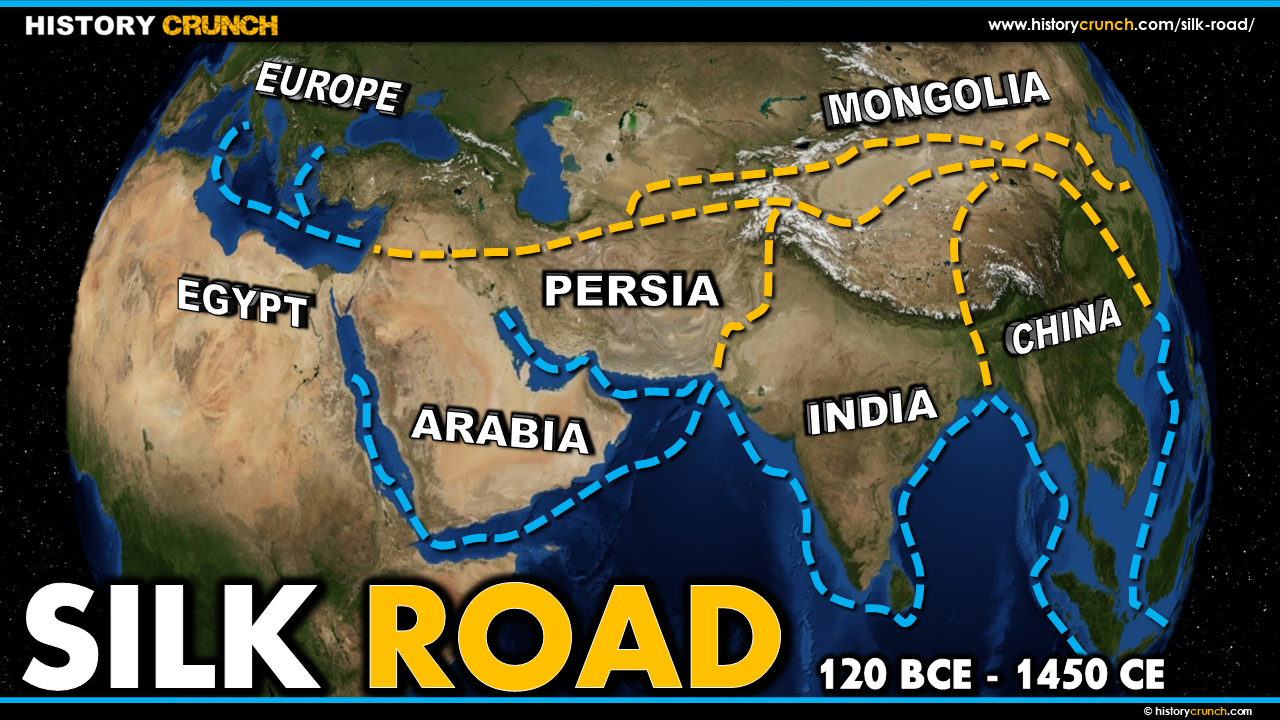CAUSES OF THE BLACK DEATH
The Black Death is the term that historians use to describe the spread of the bubonic plague. It is one of the most significant events of the Middle Ages and had a profound impact on life for people of the time. In studying the history and significance of the Black Death historians have identified several key causes, including: rats, trade networks such as the Silk Road, warfare such as the crusades, poor hygiene and a lack of medical understanding.
|
It is believed that the plague first began in Central Asia and spread to Europe through vast trade routes such as the Silk Road. Historians studying the spread of the plague discovered that the disease was spread by fleas that are commonly found on rodents such as rats and mice. As such, it is now understood that the plague spread via trade routes as the rodents travelled in caravans and on merchant ships. For instance, the first example of the plague arriving in Europe dates from 1347 when a Genoese merchant ship arrived in Sicily. The merchants on the ship were suffering from the effects of the plague, which included: flu-like symptoms, black and painful lumps that oozed blood and pus, and vomiting. The traders had just returned from a port city on the Crimean Peninsula in the Black Sea. While there they had encountered Mongol raiders which they supposedly received the disease from. Therefore, Silk Road led to the spread of the plague because it allowed the infected rats to easily travel vast distances and come into contact with all sorts of new populations of people.
|
Similar to the Silk Road, warfare in the Middle Ages helped contribute to the spread of the plague. For example, the crusades occurred in the centuries leading up to the start of the Black Death and set the stage for increased interaction between Europe and the Middle Eastern civilizations. The crusades, which began in the 11th century were a series of missions carried out by Christian crusaders from Europe to recapture the Holy Land in the Middle East which was controlled by Muslims. Ultimately, the crusades caused an exchange of people between Europe and Asia which allowed for the easier transport of the plague and infected rats.
The death tolls of the Black Death were massive, with as much as 50% of the population dying due to the plague. Several factors contributed to the spread of the plague and the overall Black Death. First, hygiene played a crucial role in the spread of the disease. Europe in the Middle Ages lacked the modern conveniences of sanitation and running water. Instead, human filth was often just dumped in the street. This situation caused rodents such as rats and mice to flourish which helped spread the fleas that carried the plague with them. As such, crowded cities and towns were often havens for the plague since it attracted rodents that were drawn to human activity. The second factor that caused the plague to lead to such high death tolls was the lack of understanding of the disease on the part of Europeans and doctors. At the time, there was little understanding of the connection between hygiene and disease. As a result, there were several different theories on the cause and spread of the diseases, which were all ultimately incorrect. For example, during the Middle Ages, many medical doctors believed that human health was related to the movement of the planets in our solar system. As such, many related the spread of the plague to the rotation of the planets including Mars and Jupiter. Another common belief about the plague was that it was spread by certain ethnic groups. For example, immigrant groups and Jewish people were often blamed for the spread of the disease and were persecuted as a result. Next, some believed that the plague was a result of God’s will and was punishment for the actions of people. As such, many people turned to their faith during the crisis.
In all, the Black Death was an important event that fundamentally changed life for people across Europe and Asia. It was caused by the spread of the bubonic plague and caused massive death tolls wherever it occurred. It is remembered today as one of the most important pandemics in all of human history and for its role in other major events and time periods, such as: the Silk Road, the Middle Ages and the Renaissance.
CITE THIS ARTICLEAUTHOR
|
|

